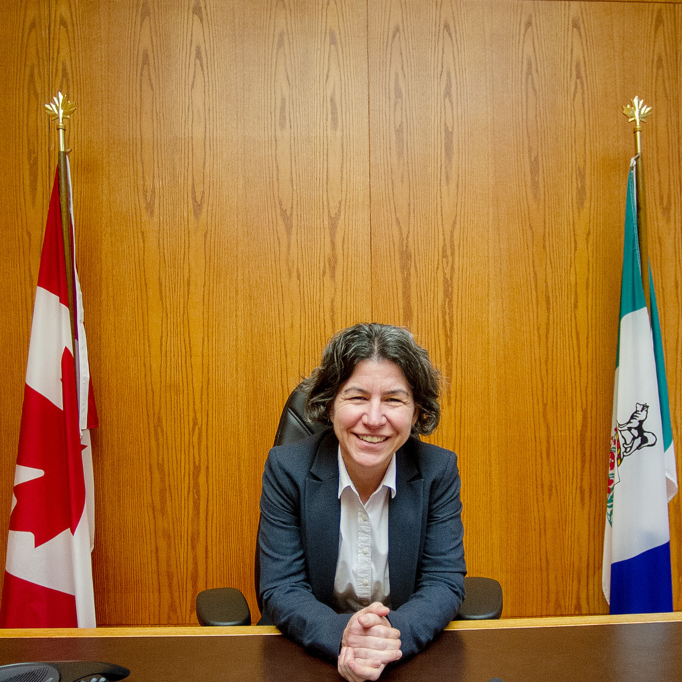The Honourable Karen Wenckebach
 WHAT WAS YOUR PATH INTO LAW AND ONTO THE BENCH?
WHAT WAS YOUR PATH INTO LAW AND ONTO THE BENCH?
I did not begin my career as a lawyer. I had trained as a social worker and, fresh out of university, I found work as a crisis counsellor. I worked as a crisis counsellor for several years before deciding that my analytical bent would be better served in the law.
WHAT EXPERIENCE IN YOUR LEGAL CAREER BEST PREPARED YOU FOR YOUR WORK ON THE BENCH?
What best prepared me for work on the bench stretches back beyond my legal career and to my training in social work and job as a counsellor. These experiences have been the thread that have carried me through my legal career to now. They taught me how to listen to and understand what people are saying. They made me more compassionate about the variety of perspectives and lived experiences people bring with them.
The skills I developed are especially valuable now, with the increasing numbers of self-represented litigants in the justice system. I find myself using what I learned in social work and as a counsellor to guide self-represented litigants through the often-daunting court process.
QUELS CONSEILS DONNERIEZ-VOUS AUX JURISTES QUI COMPARAISSENT DEVANT VOUS?
Always go back to the basics. What does counsel need to prove? What evidence does counsel need to elicit to prove each element of the case? It is simple, but by the time a matter gets to court counsel has been through the entire file over and over. It is then that they are most likely to take for granted elements of their claim and forget that they still have to prove those elements to the decision-maker.
WHAT DO YOU WISH THE PUBLIC KNEW ABOUT THE JUSTICE SYSTEM?
I think there is very little legal literacy in Canadian society, and the public does not know some of the fundamental bases upon which the law rests. Writers have taken topics such as science and history and made them interesting and accessible to the broader public. I hope one day an aspiring writer does the same with the law.